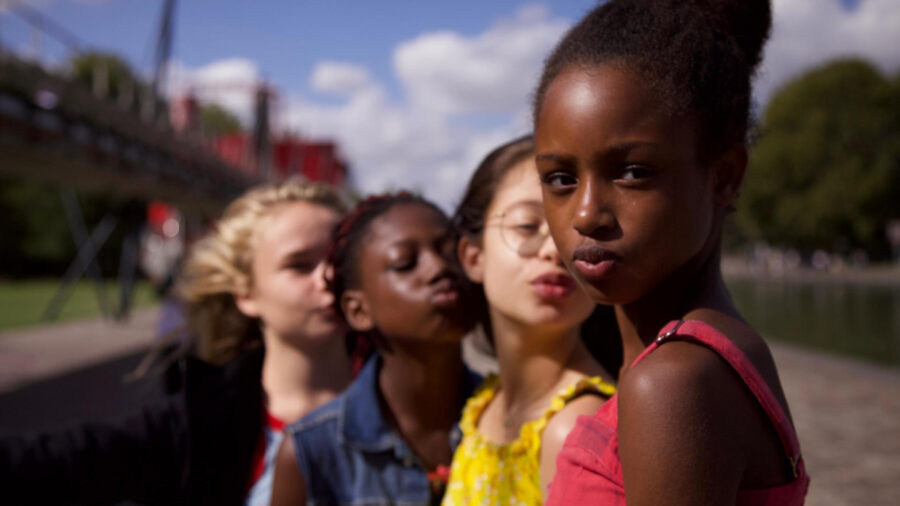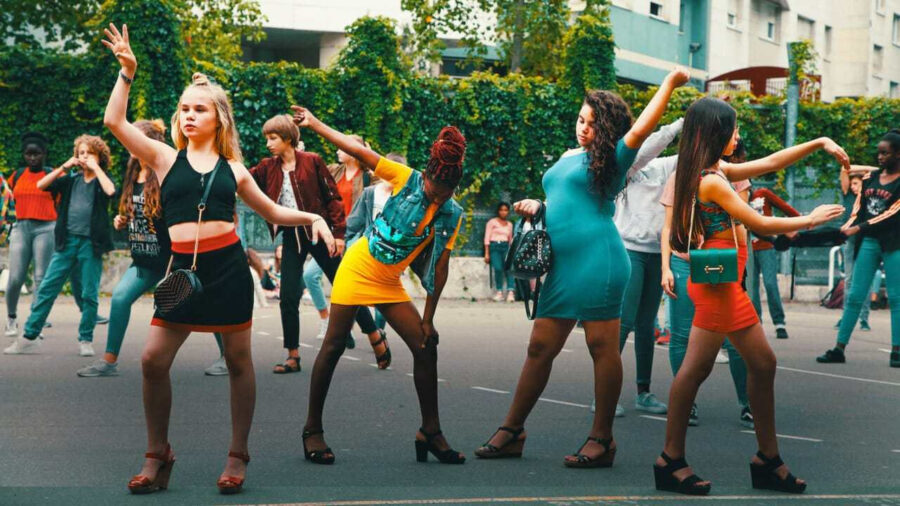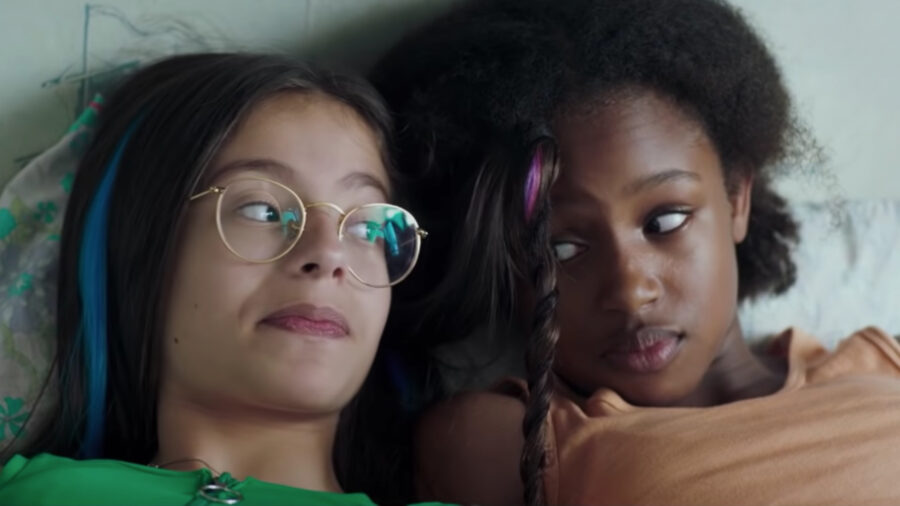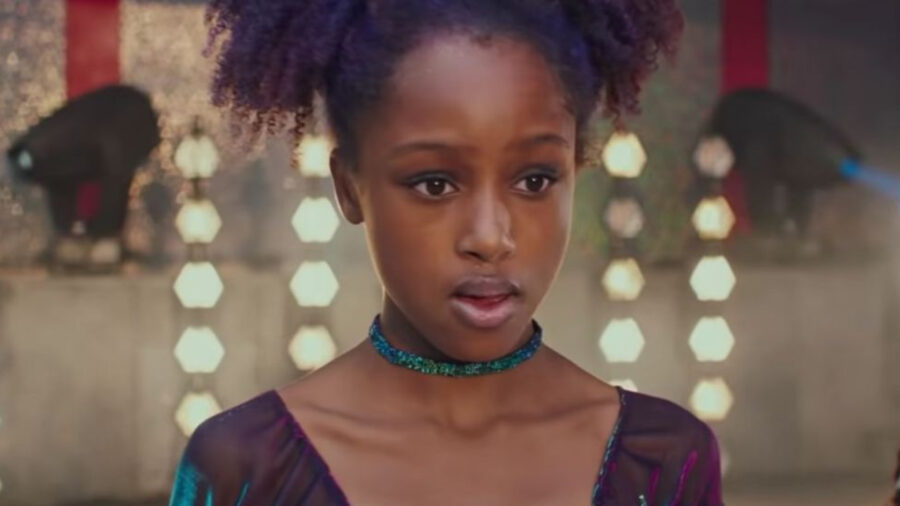Cuties Review: Controversial Netflix Film Is A Difficult Watch
Is the controversial Netflix film Cuties worth all the heated discussion?
This article is more than 2 years old

Cuties is the kind of movie that comes along once a generation and creates an unavoidable controversy. We have seen it happen with films like Larry Clark’s Kids in 1995 or Catherine Hardwicke’s Thirteen in 2003. These kinds of movies aim to showcase uncompromising looks at young people who are on the cusp of becoming sexually aware of themselves. This makes these kinds of movies uncomfortable by design.
And make no mistake: Cuties is an uncomfortable watch. The story centers around Amy (Fathia Youssouf), an eleven-year-old who feels trapped in her conservative and religiously-focused household. When she sees a group of schoolmates practicing a dance routine, she begins to feel that this could be a way for her to make friends and express herself. As she strengthens her friendship with one of the girls, Angelica (Médina El Aidi-Azouni), Amy begins to dive deeper into a pop culture that values the over-sexualization of women and starts to use those depictions as inspiration in her dancing.
So, let’s just cut to the chase: is Cuties endorsing pedophilia as a certain online contingent believes? No. There is a more difficult discussion to be had – is depicting something endorsement even if the piece of art has clear messaging against the depiction? – but writer/director Maïmouna Doucouré is showcasing the danger that is present for young girls and their understanding of their own sexuality. Amy begins to see her sexuality as a weapon that can be used to get her out of trouble or can win her adulation from her peers. Doucouré is very direct about her feelings when it comes to this, and they are far from supportive.

However, that doesn’t mean that Cuties is any easier to watch. While the marketing leads you to believe it will be singularly focused on a sexualized dancing competition, the movie is much more centered on Amy’s perspective and the conflicts she faces. Her father is taking on a second wife and Amy sees the women in her family being nothing but subservient to a male-dominated culture. She sees the value her friends put in sexual autonomy and begins to push the envelope as to what is acceptable by them. At the same time, the film takes multiple moments to point out the naivety of Amy and her friends when it comes to their understanding of sex.
And the entire idea of the sexualized dancing being liberating is directly argued against by the film’s powerful and pointed finale. Still, that means that Cuties does showcase the very thing it’s arguing against. Does that make it an unintentional endorsement? That is an artistic argument with no real definitive answer, but the context of the film makes it obvious that neither binary extreme – a strict, religious, and conservative environment or a totally liberated one – is one that is good for children.
What is really unfortunate about the discussion around Cuties is that the performances from the French actresses are being completely suffocated. Fathia Youssouf carries the film with the kind of poise that you expect from much older and seasoned actors. So much of the movie rests on her facial reactions in close-up and she knocks them all out of the park. The entire ensemble is incredibly impressive and they deserve accolades removed from the controversy surrounding the film.

When all is said and done, Cuties is the kind of movie that is actually a very impressive piece of filmmaking and storytelling, but its subject matter and depictions make it impossible to recommend. It’s the kind of movie that is purposefully trying to get under your skin and make you feel bad. It does so by exploring how popular culture insidiously encourages young girls to sexualize themselves and sells it to them as empowering. In the same breath, it also argues how conservative households can push kids into extremely liberating avenues that are dangerous for them.
These are all tough topics to tackle and Cuties meets them headfirst. By doing so, it paints itself into a corner where it is forced to depict the things it detests. During the final dance competition, we see reaction shots from the audience and most of the women seem either disgusted or unenthused at the performance. Meanwhile, the men and young boys are visibly excited. The film’s position couldn’t be any clearer, but it still doesn’t make the whole endeavor any less unsettling.

The best thing about Cuties is its final moments when Amy comes to a realization that the two worlds she has found herself in don’t actually represent who she is as a person. Both realms ask her to grow up way too fast, and Amy’s epiphany is visualized as a triumphant and (literally) uplifting moment where she simply allows herself to be a kid. It is a profound final shot that makes the film’s intentions and feelings extremely definitive. Sadly, that powerful ending is going to be lost on some people who won’t be able to see the forest for the trees.
If you find some of the content in Cuties objectionable, you should and the movie agrees with you. But, the path to that agreement is paved with the very depictions it is rallying against. That makes it a troublesome but thought-provoking movie that is sure to create many worthwhile discussions about how we approach these kinds of issues in art.












